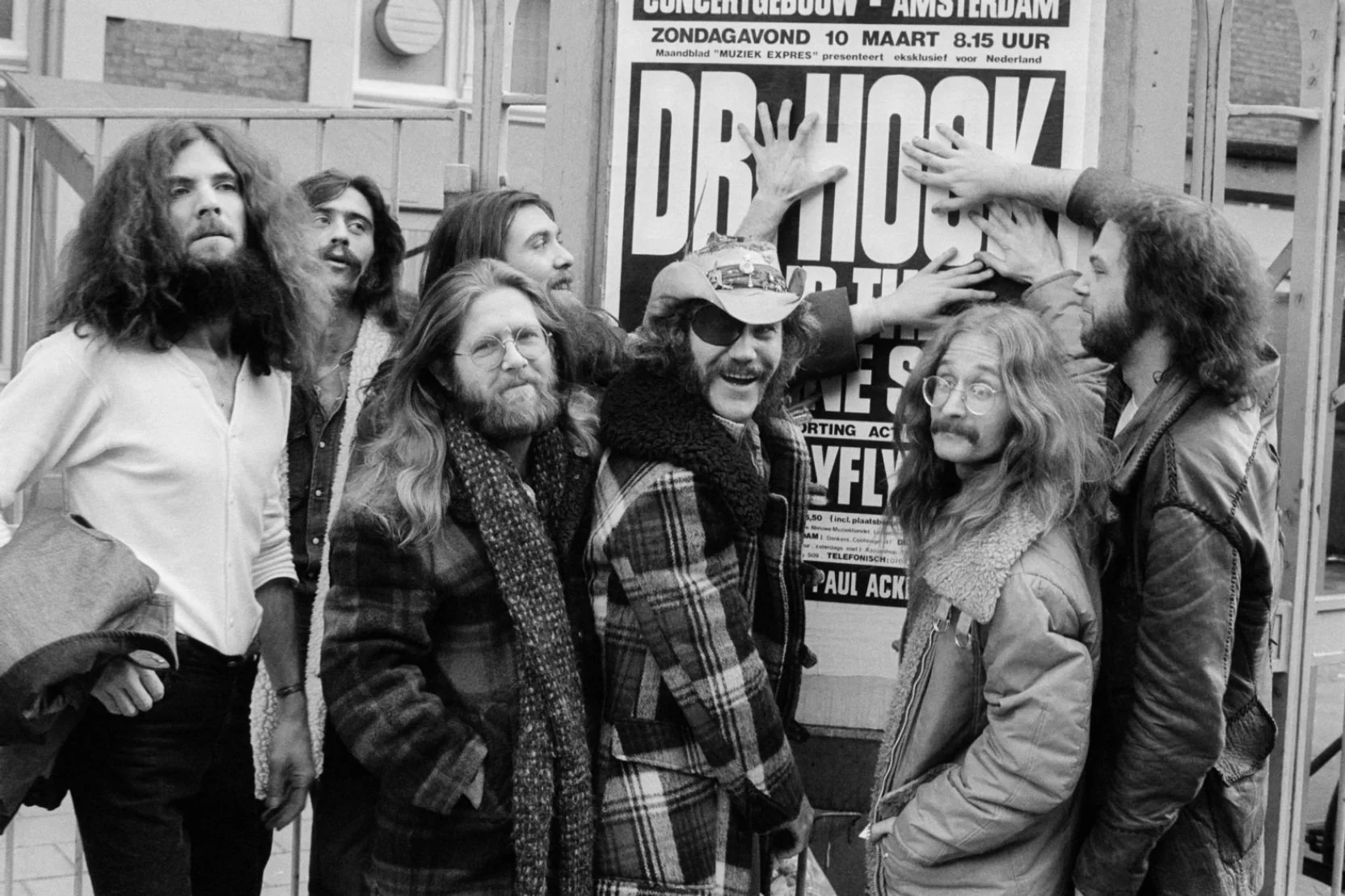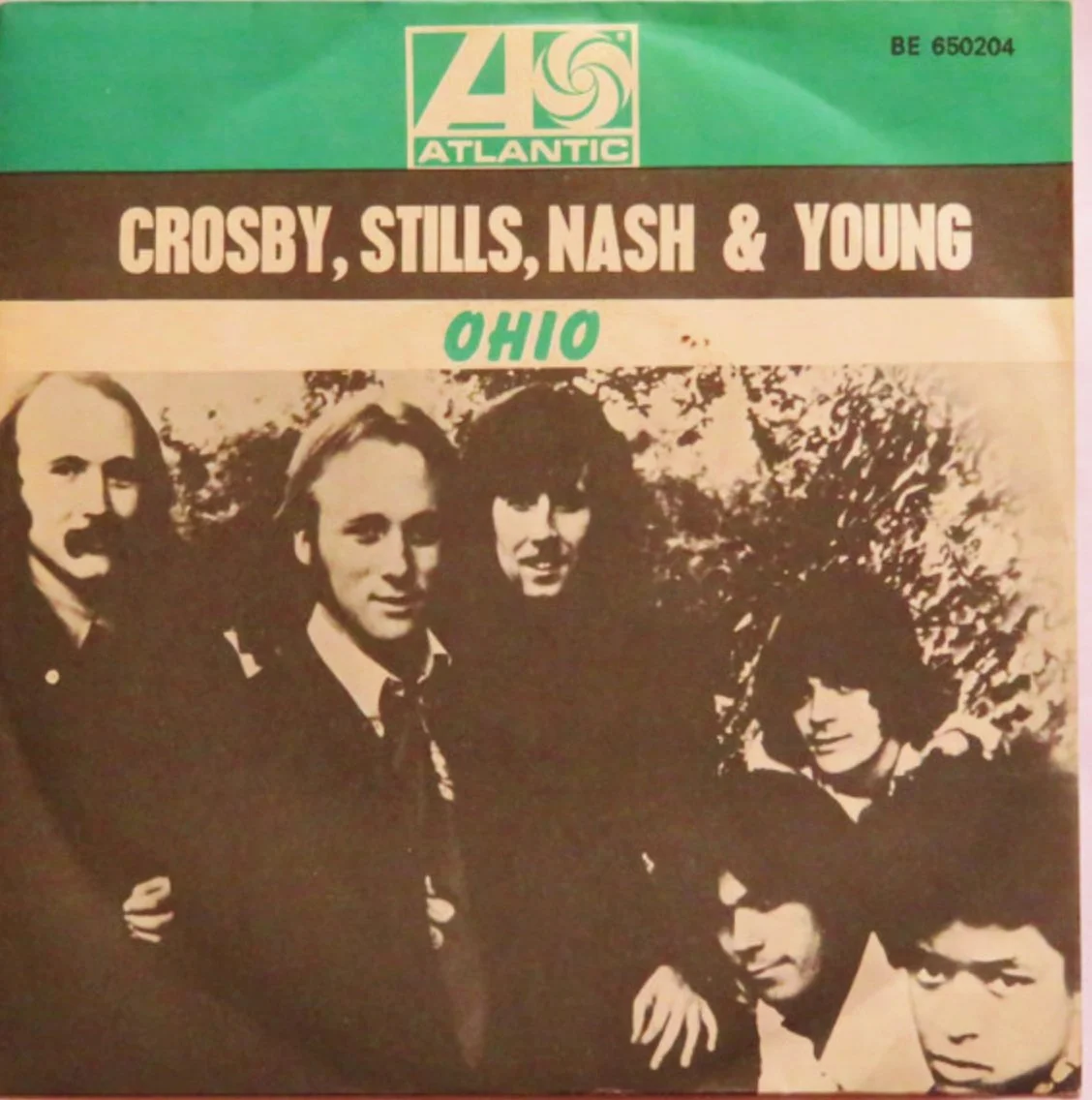Clem Burke: “A lot of things happened by accident. At the time, you think everything is going according to the pre-ordained vision of success that you have in your head when you’re 20. The New York scene was enigmatic, but also very insular. That whole scene consisted of maybe 100 people, about 85 of whom were in bands. But all of those bands were interesting, and we could see things in one another. We’d cover songs by Television or Ramones before they’d even been recorded.”
Read MoreRobert Christgau, the dean of rock critics, reviewed Class Clown and said “I much prefer the organic humor of this LP to the contrived bits and pieces of Carlin's Grammy winning AM and FM. Like Bill Cosby, Carlin seems genuinely good-natured--his takeoffs on his old parochial school buddies are affectionate and respectful. This is probably why his political humor tends to go a little flat--he can't muster the sustained hostility it requires.” And he gave it an A-. In 2016, Class Clown was selected for preservation in the National Recording Registry due to its "cultural, historic, or artistic significance."
Read MoreSeger admitted that songs like “Beautiful Loser” are influenced by poverty and the tension that comes with it. He told rock journalist Dave Marsh in 1978, “There was a definite…hopelessness of abject poverty that has always crept into everything I’ve ever done. There’s a little bit of desperation — just a little bit. Because I’ve been there, I’ve been broke.”
Read MoreThe band – mixed race and gender – surely stood for a kind of utopia that was not out of kilter for the late 60s counterculture aesthetic. Their first album, “A Whole New Thing,” was released in 1967 and went nowhere. After that, Sly wrote more for the radio because CBS records executive, Clive Davis, told him to, giving us “Dance to the Music.” The band wasn’t all that into the song at first, but it was a Top 10 hit and set the blueprint for the soul and R&B sound that was follow in the early 70s. Go listen to “Dance to the Music” and then go listen to War’s “Low Rider” or definitely “Cloud Nine” by The Temptations and listen for yourself.
Read More… in 1983, heavy metal was on the verge of its golden era and one of the bands that would open the door was a rock band out of Los Angeles, that had been playing clubs like the Whiskey A Go Go since the mid 70s. Julie Enders-Hudson, writing for the Fort Pierce, Florida Tribune in February 1984 said she was offered a publicity packet for a band she had never heard of in case she would like to write an advance article about them prior to an upcoming concert. She said yes and wondered what she had stumbled upon because she had never heard of Quiet Riot, nor had she heard of the type of music they claimed to play – heavy metal.
Read More“Country music — it's just about time for it to stop being used as a whipping boy. It's a good music. It's the basic music of America, I believe, combined with all the rest of categories that we have — jazz, blues, you name it. Like jazz has been kicked and blues has been kicked. Then it feeds down into the ethnic groups and you start slicing it up. So all that is happening now is a combination of things starting to jell. It's all one ball of wax to me.” — Charley Pride
Read More"There had been other Christmas songs that were bilingual. For example, there was a song by Hugo Rios, 'Mamacita, Donde Esta Santa Claus?' But 'Feliz Navidad' was an entity unto itself. It was expressing the joy that I felt on Christmas and the fact that I felt very lonely. I missed my family, I missed Christmas carols with them. I missed the whole Christmas scene." — JOSE FELICIANO
Read MoreWhen Paul Kantner was asked in 1975 about the musical changes in his band, which formed a decade earlier in San Francisco, he said the music they made in the 60s was a phase that they simply grew out of. Jefferson Airplane was as iconic as any 60s rock band and their San Francisco sound has literally been used as the soundtrack of films and documentaries of that era. But, like millions of other Baby Boomers, life looks different in your 30s than your 20s, especially if you managed to survive drag races and lots of drugs – and I am just talking about Grace Slick.
Read MoreLike Odyssey offered escape for the characters – real and fictional – in the form of a place to dance to disco in SNF, Gilley’s offered escape for the characters – real and fictional – in the form of a place to do the two-step. And, as “Saturday Night Fever” ultimately leads to the oversaturation of disco and contributes to its downfall, something similar will happen to Gilley’s. “Urban Cowboy” brings countryish music and a glimpse inside Gilley’s to millions of people who were nowhere near Houston — making it so popular that the locals soon wanted no more to do with it when it became a haven for tourists…
Read More…a country rock band that celebrates the fiddle should have a home on “Austin City Limits,” but Daniels was more than a fiddle player and the Austin music scene was more than country. Steve Fromholz came up with this phrase that ended up on the business card of Bill Arhos to describe what “Austin City Limits” was doing: it’s free form country folk rock science fiction gospel gum existential bluegrass guacamole opera music.
Read MoreTo hell with what they think! There are people out there who like to go to bed and have babies!
Read MoreSo, what was the New Year’s Eve show in your house? I had pretty young parents, so I am pretty confident that Guy Lombardo was not quite their cup of tea…It was always “Dick Clark’s New Year’s Rockin’ Eve” in my house and Clark produced the first one in 1972 with his co-hosts, Three Dog Night. That means Three Dog Night had the distinction of having the first song played on “American Top 40” and “New Year’s Rockin’ Eve.” Clark was definitely taking aim at the king of New Year’s Eve traditions, Guy Lombardo, who played big band music on his New Year’s Eve special. For many years, if you didn’t have plans on New Year’s Eve, Guy Lombardo from The Roosevelt Grille, and then for the last couple of years, the Waldorf-Astoria, was appointment TV. But Clark thought it was too dated.
Read MoreSo, to suggest that the small town of Sedalia, Missouri was not prepared for what was to descend on it the weekend of July 19, 1974 might be an understatement. Who could have predicted that bags of ice would go for 30 bucks and hookers, who could be found in nearby trailers, would advertise their services for 5? Who could have known that porta potties would be set on fire and livestock in the community was not safe from the hands and butcher knives of hungry rock fans?
Read MoreWell, to be sure, Rush was not a radio friendly band until the 80s . Certainly, “The Spirit of the Radio” in 1980 actually helped break that barrier. Many critics didn’t like them – couldn’t stand them – and were not even sure what they were trying to do, musically. This is from John Mendelson: “To put it as succinctly as possible, Rush sound – quite deliberately, one supposes – like Led Zeppelin with lobotomies, singer Geddy Lee like Robert Plant at 33 1/3 rpm. The only people who are going to find this exciting are barbed-out little twerps who, if blindfolded, would assure you that a freeway underpass at rush-hour is into some really far-out musical stuff, man.”
Read More"For some strange reason," began Locorriere, "whenever people strap on a guitar and step on stage, they tend to strike a pose or do something really flashy or showbiz. But we used to just pile into a station wagon and have a 12-15 hour journey between gigs, so we entertained ourselves by making up songs and little voices and making each other laugh…And we were told that if we could get that loose feeling on stage and forget about showbiz, then we could have fun and entertain the audience at the same time.” — Dennis Loccorriere of Dr. Hook and the Medicine Show
Read MoreThese photos inspired Young to pick up his guitar. Within 15 minutes, he had the lyrics… the chorus…four dead in Ohio…and Crosby began to harmonize with him. Crosby told Graham Nash to schedule some studio time ASAP. “You won’t believe this fucking song Neil’s written.” He had written “Ohio.”
Read MoreThe theme of “Paradise by the Dashboard Light” is teenage lust. It’s about a teenage boy trying to convince a teenage girl to have sex with him in the front seat of a car. Ellen Foley, the female singer who duets with Meatloaf in this song, was also on that National Lampoon tour and she said that many of the songs that became Bat Out of Hell were born on that tour. She also said of [Jim]Steinman, “I don’t want to be a shrink, but I think it was probably him working out his own teenage desires that he hadn’t done in real life…”
Read MoreThe Troubadour showcased a wide variety of talent but it is perhaps best known as the heartbeat of the singer-songwriter movement of the early 1970s. James Taylor, a Troubadour regular, busted that door open with “Sweet Baby James” in 1971 and Jackson Browne walked right in. Much of this was playing into the desire for authenticity, or at least music that SOUNDED authentic. James Taylor writes about his own heroin addiction in “Fire and Rain,” Carly Simon writes about somebody in Your So Vain (we find out later its Warren Beatty), and we just assume Jackson Browne is writing about his own life in songs like “Doctor My Eyes.” Judy Kutulas, in her book about living with the changes the 60s wrought, After Aquarius Dawned, said that in the 70s traditional authority had lost its influence, especially over the younger generation, driving them toward a host of new experts with real-world credibility. -- and they gave that credibility to musicians.
Read MoreIt was the early 70s, before there were laws about kids and seat belts and things like that, so when I went with my mom to run errands, I had to slide onto the bench seat in the front and if that seat was too hot from baking in the sun, I would kind of hover of the seat for a few minutes before lowering myself on it. If you know, you know. My view on these drives was the car radio, which was AM only but had these big silver knobs, one for tuning and one for volume. There were 5 or 6 push button presets and I was not allowed to touch any of this but the power my mom had, a twist of the dial here, a push of the button there and boom there she was…the soft rock queen, Olivia Newton-John.
Read MoreAmerican Top 40 was not going to eliminate any songs, although they did shorten songs as singles more routinely grew to be longer than the traditional three minutes. That will eventually lead to adding a fourth hour to the show. They also edited the word “shit” out of Bob Dylan’s “George Jackson” and issued a warning about the word “crap” in Paul Simon’s “Kodachrome.” Affiliates could edit out songs if they wanted to, but AT40 was not going to do that. Some affiliates, for example, would not play “My Ding-a-Ling” by Chuck Berry because of, well, his reference to his ding-a-ling.
Read More
















